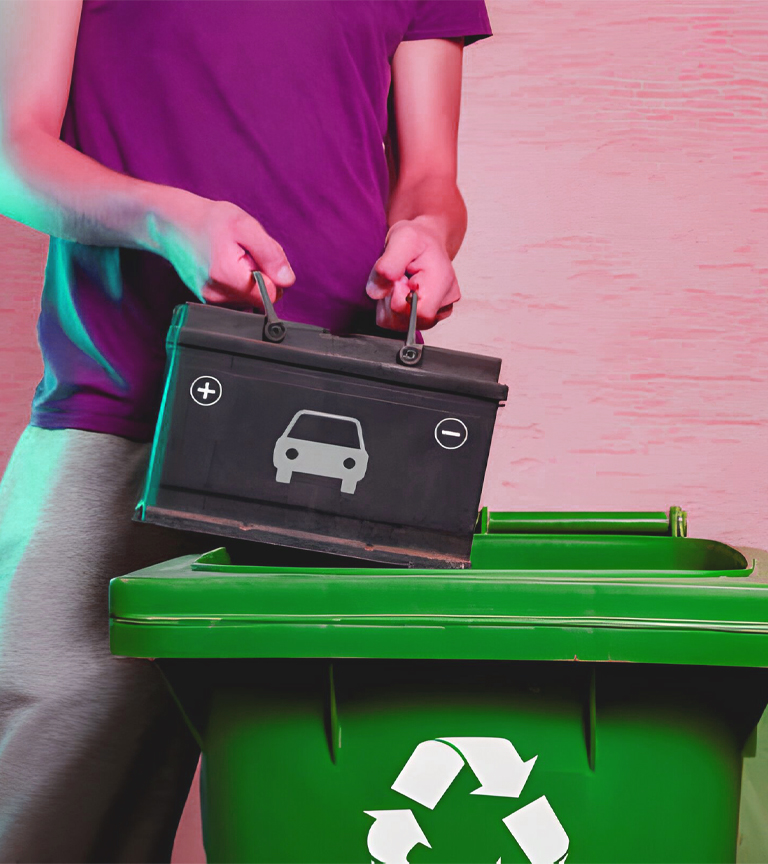As the world moves towards a more sustainable future, responsible management of electronic waste (e-waste) is becoming increasingly crucial. Batteries, in particular, pose significant environmental and health risks if not disposed of properly. In response to these challenges, many countries have implemented Extended Producer Responsibility (EPR) programs to hold manufacturers accountable for the end-of-life management of their products. At ewour, we recognize the importance of sustainability and compliance with environmental regulations. This article explores the significance of Battery EPR registration and how ewour can assist companies in fulfilling their obligations while promoting environmental stewardship.
Understanding Battery EPR:
Extended Producer Responsibility (EPR) is a policy approach where manufacturers bear the financial and operational responsibility for managing their products throughout their lifecycle, including collection, recycling, and disposal. Battery EPR specifically focuses on batteries, which contain hazardous materials such as lead, cadmium, and mercury that can leach into the environment if not handled properly.

BIS/CRS Registration is important for manufacturers operating in the Indian market in several ways:
Battery EPR registration is a legal requirement for manufacturers, importers, and distributors of batteries in many jurisdictions. The registration process typically involves:
Documentation and Reporting: – Companies must provide detailed information about the types, quantities, and composition of batteries they produce or import. This information helps regulatory authorities assess the environmental impact of batteries and develop appropriate waste management strategies.
Financial Obligations:- Depending on the jurisdiction, companies may be required to pay fees or contribute to a fund dedicated to battery recycling and disposal programs. These financial contributions support the infrastructure needed to collect, transport, and recycle batteries at the end of their life.
Compliance Verification: – Regulatory agencies may conduct audits or inspections to ensure that companies are complying with battery EPR requirements. Non-compliance can result in penalties, fines, or legal action, highlighting the importance of accurate and timely registration.

EWOUR is leading and provider Battery EPR registration in India and you can get numerous benefits for both businesses and the environment:
Compliance with Regulations:- Registering with battery EPR programs ensures that companies meet their legal obligations and avoid potential penalties or sanctions for non-compliance. It demonstrates a commitment to environmental responsibility and corporate citizenship.
Access to Markets:- Many countries and regions require EPR Registration for Battery as a prerequisite for selling batteries within their jurisdiction. By registering, companies can access new markets and expand their customer base while demonstrating their commitment to sustainability.
Environmental Protection: – Proper management of batteries through EPR programs reduces the environmental impact of e-waste, conserves natural resources, and minimizes pollution. It contributes to a cleaner, healthier planet for current and future generations.
Corporate Reputation:- Participating in battery EPR programs enhances a company’s reputation as a socially and environmentally responsible organization. It can improve brand loyalty, attract environmentally conscious consumers, and differentiate the company from competitors.
Resource Recovery:- Recycling batteries through EPR programs allows for the recovery of valuable materials such as lithium, cobalt, and nickel, which can be reused in the manufacturing of new batteries or other products. This conserves finite resources and reduces the need for virgin materials extraction.
Registration of battery producers in India and companies to comply with the e-waste (management) rules of 2016, and as the battery manufacturer one has to register for EPR. This is also a directive ensuring that all batteries are disposed off appropriately through recycling, collection and disposal since it obligates them to be responsible for their own wastes. EWOUR company leading and provider EPR Registration for environmentally friendly activities such as garbage as well as waste management through EPR Registration which confirm that it cares about environmental sustainability by implementing efficient waste management systems.The management of battery waste promotes not only responsible corporate practices but also it meets regulatory requirements that minimize its environmental impact and enhance resource efficiency.
In the context of ecological sustainability, there is a significant framework, known as Extended Producer…
Today plastic pollution has arisen as a big challenge for governments. So, there is a…
Data security has become more important for every business. Sometimes important papers might be revealed…

Years of Experience

Industries Served

Satisfied & Happy Clients
Ewour Waste Management accepts a wide range of electronic waste, including old computers, laptops, mobile phones, printers, and more.
Ewour Waste Management utilizes state-of-the-art technology and follows strict environmental guidelines to ensure responsible recycling and the recovery of precious metals from electronic waste.
Yes, both individuals and businesses can benefit from Ewour’s tailored recycling solutions, contributing to a cleaner environment while responsibly managing their electronic waste.












Ewour Waste Management specializes in tailored recycling solutions for electronic waste. Our expertise merges cutting-edge tech with environmental knowledge to provide eco-friendly reuse and recovery of precious metals from E-waste, aligning with our commitment to sustainable practices.
Ewour Waste Management offers tailored recycling solutions for electronic waste, focusing on eco-friendly practices and precious metal recovery.
Mon – Fri: 9:00AM – 6:00 PM
Sat – Sun: 9:00AM – 6:00 PM
WhatsApp us